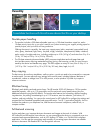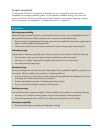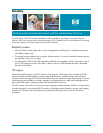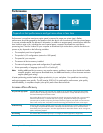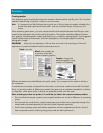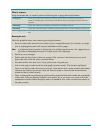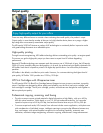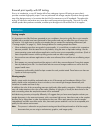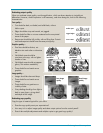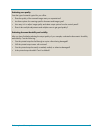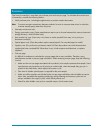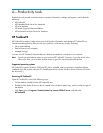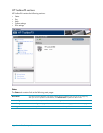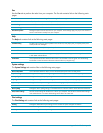
Evaluating laser all-in-one products 17
Ensured print quality with HP testing
Prior to its introduction, a new HP LaserJet All-in-One undergoes rigorous HP testing to ensure that it
provides consistent high-quality output. Tests are performed with a large sample of products through each
step of the design process, to be certain that the All-in-One measures up to HP standards. Throughout this
testing, HP discovers and resolves any issues that would compromise output quality. The result is a solid,
reliable product that produces consistent, excellent print throughout its life and the life of its supplies.
Evaluation
Printing samples
It is important to test files like those generated at your workplace. Most print quality files or print samples
included with a product have been optimized for that product and may not reflect the type of output you
will receive. You might want to use the print samples that you created for evaluating performance (see
“Creating samples” on page 14). Follow these guidelines for creating sample documents:
• When evaluating more than one product’s output quality, it is crucial that you make a fair comparison
between products. Print the same files on all products, using the same or equivalent settings. Use the
same operating system and software application, and be sure to test comparable print drivers. (Each of
these components interacts with the printing process and can affect output quality.)
• Use more than one software application to make sure software/driver conflicts are not affecting output
quality.
• Plain papers vary among brands and the regions in which they are manufactured. Some plain papers
have a preferred print side. You should also take into account storage conditions as well as how the
papers handle toner.
• Temperature and humidity should be kept constant for each product tested. These factors can have an
impact on final output quality.
Viewing samples
Ideally, output quality should be evaluated under a mix of fluorescent and incandescent lighting. Print
quality should not be evaluated too close to windows, since natural light changes dramatically with
variations in weather and time of day.
In addition, the color of the surrounding area can significantly affect quality perception. White surroundings
may call undue attention to the color of the media. Medium or light gray is usually the best choice for the
area surrounding where the sample documents will be evaluated.
Individuals may perceive print quality differently. HP suggests that you have several people evaluate your
sample documents, in the same environment, with a consistent light source. Have them vote on the samples
that they like by listing them in order from the best to the worst. Allow each person to rate the samples
independently and then record the results. Also, have each person establish a cut line for acceptable print
quality for the end-user environment.
Note This process is referred to as psychometric testing and should be performed on all of the sample
documents that you are using to evaluate text, graphics, and image quality.



